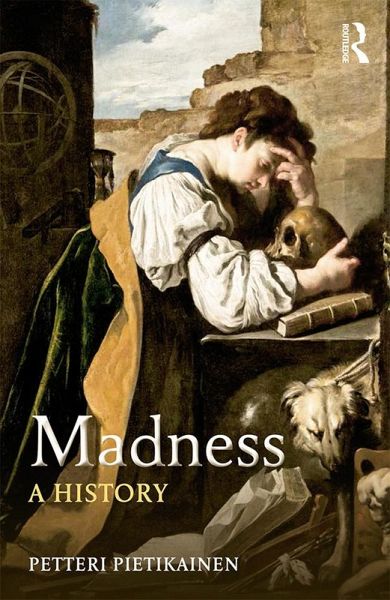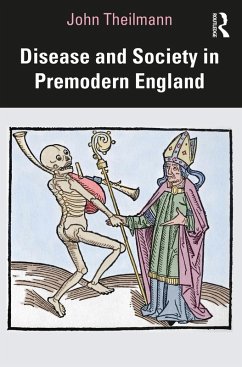
Madness (eBook, PDF)
A History
Versandkostenfrei!
Sofort per Download lieferbar
46,95 €
inkl. MwSt.
Weitere Ausgaben:

PAYBACK Punkte
23 °P sammeln!
Madness: A History is a thorough and accessible account of madness from antiquity to modern times, offering a large-scale yet nuanced picture of mental illness and its varieties in western civilization.The book opens by considering perceptions and experiences of madness starting in Biblical times, Ancient history and Hippocratic medicine to the Age of Enlightenment, before moving on to developments from the late 18th century to the late 20th century and the Cold War era. Petteri Pietikäinen looks at issues such as 18th century asylums, the rise of psychiatry, the history of diagnoses, the exp...
Madness: A History is a thorough and accessible account of madness from antiquity to modern times, offering a large-scale yet nuanced picture of mental illness and its varieties in western civilization.
The book opens by considering perceptions and experiences of madness starting in Biblical times, Ancient history and Hippocratic medicine to the Age of Enlightenment, before moving on to developments from the late 18th century to the late 20th century and the Cold War era. Petteri Pietikäinen looks at issues such as 18th century asylums, the rise of psychiatry, the history of diagnoses, the experiences of mental health patients, the emergence of neuroses, the impact of eugenics, the development of different treatments, and the late 20th century emergence of anti-psychiatry and the modern malaise of the worried well. The book examines the history of madness at the different levels of micro-, meso- and macro: the social and cultural forces shaping the medical and lay perspectives on madness, the invention and development of diagnoses as well as the theories and treatment methods by physicians, and the patient experiences inside and outside of the mental institution.
Drawing extensively from primary records written by psychiatrists and accounts by mental health patients themselves, it also gives readers a thorough grounding in the secondary literature addressing the history of madness. An essential read for all students of the history of mental illness, medicine and society more broadly.
The book opens by considering perceptions and experiences of madness starting in Biblical times, Ancient history and Hippocratic medicine to the Age of Enlightenment, before moving on to developments from the late 18th century to the late 20th century and the Cold War era. Petteri Pietikäinen looks at issues such as 18th century asylums, the rise of psychiatry, the history of diagnoses, the experiences of mental health patients, the emergence of neuroses, the impact of eugenics, the development of different treatments, and the late 20th century emergence of anti-psychiatry and the modern malaise of the worried well. The book examines the history of madness at the different levels of micro-, meso- and macro: the social and cultural forces shaping the medical and lay perspectives on madness, the invention and development of diagnoses as well as the theories and treatment methods by physicians, and the patient experiences inside and outside of the mental institution.
Drawing extensively from primary records written by psychiatrists and accounts by mental health patients themselves, it also gives readers a thorough grounding in the secondary literature addressing the history of madness. An essential read for all students of the history of mental illness, medicine and society more broadly.
Dieser Download kann aus rechtlichen Gründen nur mit Rechnungsadresse in A, B, BG, CY, CZ, D, DK, EW, E, FIN, F, GR, HR, H, IRL, I, LT, L, LR, M, NL, PL, P, R, S, SLO, SK ausgeliefert werden.













